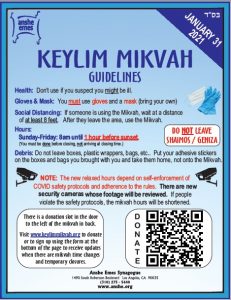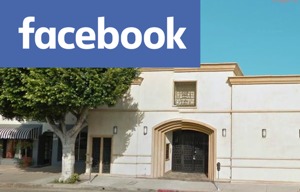MIKETZ
NEXT PARSHA: Vayigash
A. Summary
1. Yoseph Interprets Pharaoh’s Dreams. Two years after the chief butler was freed, Pharaoh had two unusual dreams (in one, seven lean cows devoured seven well-fed cows, yet remained lean; in the other, seven thin ears of grain swallowed seven full ears, yet remained thin). Pharaoh was disturbed by these dreams, yet was unsatisfied with his advisors’ interpretations. It was then that the chief butler, recalling Yoseph’s ability to interpret dreams, told Pharaoh of Yoseph’s talents. Pharaoh immediately summoned Yoseph who, after proclaiming that it was Hashem who would interpret the dreams, explained that the dreams meant that Egypt would experience seven prosperous years, followed by seven years of famine (and that the duplication of dreams meant that the beginning of the seven years were imminent). Yoseph further suggested that a wise and discerning person be appointed to administer the land and store food.
2. Yoseph Is Appointed Viceroy. Completely accepting Yoseph’s interpretations, Pharaoh appointed Yoseph, then 30, royal viceroy. Pharaoh installed Yoseph, giving him the royal signet ring, adorning him in fine garments and placing him on the viceroy’s chariot. Pharaoh gave Osnas bas Potipherah to Yoseph as a wife, who bore him 2 sons, Menasheh and Ephrayim. Yoseph amassed an abundance of food in the store houses. After the seven bountiful years were over, the years of famine began. Yoseph opened all his storehouses and sold the provisions stored within to the Egyptians. The neighboring lands also suffered from the famine, and their inhabitants came to Yoseph to purchase food.
3. Yoseph’s Brothers Come To Egypt To Buy Food. Due to the famine, Yaakov sent all of his sons (except Binyomin) to Egypt to buy food. The brothers were recognized by Yoseph (but not vice versa), who accused them of being “spies”, to which they responded that they were in Egypt merely to buy food. Yoseph ordered them to bring back Binyomin in order to “prove” their story. After imprisoning them for three days, Yoseph released 9 of the 10 brothers, holding Shimon until the others returned with Binyomin. The brothers now remembered and regretted their treatment of Yoseph, to which they attributed their current plight. Unbeknownst to them (they were unaware that Yoseph understood Hebrew), Yoseph understood their display of regret, walked away and wept.
4. The Other Brothers Return to Yaakov. Before they departed, Yoseph secretly instructed his servants to fill their vessels with grain but return their money. On route, the brothers discovered the money and feared that they would be accused of stealing the grain. Upon arriving home, they recounted the story to Yaakov, who still refused to let Binyomin return to Egypt with them. After the grain became depleted, Yehudah told Yaakov that he would take responsibility for safely returning Binyomin, and Yaakov begrudgingly agreed to let him take Binyomin to Egypt.
5. The Brothers Return With Binyomin To Egypt. When the brothers arrived in Egypt, they were escorted to Yoseph’s house, where they dined with Shimon and Yoseph. Yoseph again ordered his servants to fill their bags, but to return their money and place his silver goblet in Binyomin’s sack. The brothers set out for home, but were soon confronted by Yoseph’s steward, who accused them of stealing Yoseph’s goblet. They protested their innocence and agreed to be searched, following which the goblet was found in Binyomin’s sack. The brothers tore their clothes in grief and returned to Egypt. Yehudah offered himself and his brothers as “bond” in lieu of Binyomin, but Yoseph refused and detained Binyomin.
B. Divrei Torah
1. LilMode U’lilamed (Rabbi Mordechai Katz)
a. “Bitachon” (Faith In Hashem) Yoseph languished in prison for two years after the butler was freed since, as great as he was and after witnessing Hashem’s hand in his life, placed his faith in the butler, not Hashem. When Rav Levi Yitzchak of Berditchev saw a man running to his “parnassah” (livelihood”), he asked “how do you your parnassah is in front of , and not behind, you? Have a little faith in your eventual success, appreciate what you are working for, have faith in Hashem and you won’t have to run so hard!” We must remember this Bitachon at all times.
b. Doing Teshuvah. Why did Yoseph falsely accuse his brothers? Why did he cause his father, Yaakov, to worry about Shimon and Binyomin? The Rambam teaches that since Yoseph’s brothers were guilty of a grave injustice towards Yoseph, the spiritual honor of the House of Yaakov could only be restored through their “teshuva” (repentance). The true test of teshuva is to be confronted with the same test and persevere, which they did when they refused to abandon Binyomin. (Berachos 34 — “The standing that the penitents have before Hashem, even the most righteous have not.”)
2. Growth Through Torah (Rabbi Zelig Pliskin)
a. Feeling Joy For What You Have Frees You From Envying Others’ Lots. “And behold from the Nile rose up seven cows, which looked good and healthy of flesh and they gazed up in the pasture.” Rashi comments that the reference to the well-fed cows “looking good” was a sign of years of plenty, when people look good to each other and are not envious of each other. The more you focus on and appreciate what you have, the less you will be concerned with what someone else has, and the more content you will be. The more you focus on the good in your life the less it will make a difference to you if anyone else has more than you.
b. Don’t despair since liberation from difficulties can come at any moment. “And Pharaoh sent and he called Yoseph, and they ran with him from prison.” The Chofetz Chaim notes that Yoseph was “rushed” out of prison; this is the way that Hashem brings about redemption. As soon as the right time comes, we will immediately be delivered from our exile. Even in moments when no change seems in sight, Hashem’s hand in change may be just around the corner and swift.
c. Look for even minor virtue in others. How could Pharaoh trust Yoseph — an “ex-con” who was previously a slave — to be his viceroy? Rabbi Chaim Shmuelevitz teaches that when Yoseph attributed his interpretations entirely to Hashem, it underscored his total honesty and trustworthiness. Pharaoh extrapolated from this one good character trait. We, too, should focus others’ positive traits, and extrapolate from them in judging others.
d. People respect someone who has the courage to say he made a mistake. Rabbi Dovid of Zeviltov commented: if a person did something wrong and recognizes that he has done wrong, he will be forgiven; if, however, he denies it, there is no atonement for him. When Yoseph’s brothers said that they were innocent, Yoseph accused them of being spies; when they said they were guilty, he was full of compassion for them and wept.
e. Patience will prevent you from prematurely evaluating a situation as negative. The Midrash censures Yaakov for saying “Why did you cause me bad by telling the man that you have another brother” (i.e., for immediately evaluating the situation as bad). If he were able to see the “entire picture”, he would have seen how Hashem planned everything for good. Acquire a “wait and see” approach in lieu of immediately assuming that something will turn out badly.
f. Feel joy when you see yourself improving. Rashi comments that from the day that Yoseph’s brothers sold him they didn’t drink wine, but on this day they drank. Why now? When they dined, Binyomin’s portions were five times as much as his brothers. Although Binyomin received a greater portion, the brothers weren’t envious. Because they had overcome the trait of envy they were joyous and were able to drink wine again. (Kav Chain). We, too, should feel great joy when we see improvement in our character traits.
3. Kol Dodi on the Torah (Rabbi David Feinstein)
a. Seeing Hashem’s Role In Events. Why was Yoseph punished for relying on the butler to plead his case to the Pharaoh? Aren’t we supposed to do whatever we can to improve our lot, rather than merely rely on Hashem’s miracles? Yoseph, in his greatness, should have known that in a country such as Egypt, the butler would have taken all of the credit and Hashem’s role would have gone unnoticed to Yoseph and to others. Hashem had to wait two years in order to allow Yoseph (and others) to see His role in the sequence of events.
b. Lashon Hora (Gossip). When Yoseph accused his brothers of being spies, they said to one another that this was a result of their treatment of Yoseph. Rashi compares the Hebrew words for “spy” and “gossip monger” to learn out that, just as spies focus only on the weaknesses and low points of a particular region, so too do those who speak “lashon hora” (gossip) focus on the weak points of a person. To justify their actions, Yoseph’s brothers had immediately exaggerated his personal defects. We, too, must be careful to avoid lashon hora and instead try to focus on others’ strengths.
4. Wellsprings of Torah (Rabbi Alexander Zusia Friedman)
Having mercy on others. Yaakov said to his sons, “And (may) G-d Almighty give you mercy before the man . . . ” Chazal teach (Shabbos 151) that he who has pity on his fellow-creatures will find that Heaven will have pity on him in turn. Thus, Yaakov was saying: “May G-d put mercy into your hearts so that you may have mercy on others, before the man, even before the L-rd will cause the man to have mercy on you. This will ensure the release of your other brother and of Binyomin, for if you yourselves will have mercy on your fellow-creatures, you too will receive mercy from Heaven.” (Imrei Shofar)
5. Majesty of Man (Rabbi A. Henach Leibowitz)
a. The Difference Between Knowing and Feeling. Why was Yoseph forced to languish an additional two years in prison? The Baalei Mussar teach us that greatest distance in human body is from brain to the heart (not from head to toe); that is, there are many facts and ideas which we understand intellectually, but do not feel on a deeper emotional level. Yoseph understood that Hashem’s hand is in everything, but this didn’t translate to an emotional level where his “Bitachon” (faith in Hashem) was incomplete. We must use the daily miracles around us to strengthen our faith in Hashem on an emotional level.
b. “Ahavas Yisroel” (Brotherly Love). Yoseph’s “justification” for “suspecting” his brothers of spying was the questionable need for ten brothers from such a prestigious family to make such an arduous journey; after all, why couldn’t only one come with an entourage of servants? The brothers responded that “we are all sons of one man . . . “; Yaakov sent all of them (except Binyomin, who was the youngest and, he believed, the only surviving son from Rachel) to foster their feelings of brotherhood and unity. Brotherly love — on an individual and communal level — is the basis of Torah life and the cornerstone of Judaism.
6. Soul of the Torah: Insights Of the Chassidic Masters on the Weekly Torah Portions (Victor Cohen).
Our Spiritual Potential. The name for “Yoseph” means “to increase” — namely, the unbounded potential for growth. This growth we find in the soul, “the actual part of G-d from above.” The prison in which Yoseph was held refers to the body and to material existence as a whole, which tend to confine the power of the soul and deny it expression. Although G-d gave us the Torah, the Torah is also affected by the limits of material life, and the G-dly source is not always evident. We were sent into this world to reveal G-dliness. The material nature of worldly existence may initially restrict the Jewish nature; however, the constraints are temporary. Just as Yoseph became the ruler of Egypt, every Jew should become a source of influence showing how the potential of the soul can overcome materialistic dominance. (The Lubavitcher Rebbe, z’tl).
7. Living Each Week (Rabbi Abraham Twerski).
a. Being Alert To Opportunities. ” . . . and Pharaoh awoke. He slept and dreamt a second time.” Why did Pharaoh awake and return to sleep in between his two dreams? The first dream foretold a shortage of meat, without which one could survive; the second dream predicted a shortage of bread, which would be life threatening. In other words, unless something was done, things would go from bad to worse. Pharaoh’s arousal between the two dreams indicated that if one was alert and took proper steps, the disaster predicted by the second dream could be forestalled. If, however, one ignored the signs of danger and made oneself oblivious to the problems as symbolized by returning to sleep), the problems would be greatly intensified. In our own lives, we often ignore warning signs which could have prevented undesirable consequences had we heeded them. Our failure to recognize these signs is almost undoubtedly due to our reluctance to make the necessary changes in our lives that would avert further difficulties. Like Pharaoh returning to sleep, we opt to remain comfortable rather than change. Opportunities for constructive change occur quite often. We must be alert to take advantage of them, and not allow our desire for comfort to discourage us from doing so.
b. Teaching By Example. Anyone of a lesser spiritual stature than Yoseph would likely not have withstood the temptation to take the opportunity to avenge his brothers’ act. But Yoseph had other plans and, in order to give his brothers the opportunity to rectify their crime against him and redeem themselves, he suppressed the powerful temptation to avenge a wrong. Restraining himself at that moment required extraordinary character. Where did Yoseph acquire this capacity to show such tremendous restraint? He learned it from his mother Rachel, who remained silent when her father substituted her sister Leah for her on what was to have been her wedding night. Rachel’s act of supreme sacrifice was held in highest esteem by G-d, superior even to the personal sacrifices of the Patriarchs. Rachel did not need to lecture her children about the virtue of restraint; she taught by her actions and life, and this is why her teachings were so effective. Ensuring that our children have a proper Torah education, but without personally teaching them the wonderful principles and values of Torah, does not suffice.
8. Torah Gems (Rabbi Ahron Yaakov Greenberg).
G-d Is In Charge. “But there was none that could interpret them to Pharaoh. . . ” The Egyptian magicians and wise men were unable to interpret the dreams of Pharaoh, because they had been educated in the erroneous belief that the world functions only according to the laws of nature. Yoseph, who had had been given a different education in Yaakov’s home, immediately recognized G-d’s role. (Hokhmah Im Nahalah)
9. Vedibarta Bam (Rabbi Moshe Bogomilsky)
Our Own Example. And Yoseph called the name of the first born Menasheh; “for G-d had made me forget all my toil and all my father’s house. ” Why was Yoseph grateful for forgetting his father’s house? There are many whose only attachment to Judaism is through nostalgia. They may remember their parents or grandparents’ observance, but unfortunately they do not practice this way of life. Yoseph remained tenacious in his Torah observance. Thus, it was unnecessary for him to nostalgically tell his children about his parents’ observance. He conducted his home life in exactly the same way as his father had done and was able to “forget” his father’s house and show his family his own home as a living example.
10. The Pleasant Way (Horav Avrohom Pam zt’l)
Utilizing “The Seven Years Of Plenty”. When Yoseph was summoned from prison to interpret Pharaoh’s dreams, Pharaoh was amazed by his lucid explanation. Yoseph then gave Pharaoh a suggestion on how to implement the message of his dreams. As Pharaoh had summoned Yoseph only to interpret the dreams, why did Yoseph offer him unsolicited advice as well. Wasn’t Yoseph risking his life, or at least violating protocol, by offering his unsolicited recommendation? Ramban notes that implementing a plan of action to deal with the message of the dreams was an integral part of his interpretation. There can be another reason which motivated Yoseph – he understood that unless something was done to take full advantage of the seven years of plenty, that the bounty would be squandered. While a few stocks of wheat would have very little value during a time of massive surpluses, they could prove life-saving when Egypt would be ravaged by terrible hunger. Yoseph’s insight has practical applications. In our youth, we look down the long road of life ahead of us and think it is endless. What value does a day, a week, a month or even a year have, when there is so much time available? There is no sense of urgency to use every opportunity to learn Torah and do mitzvos. We overlook the fact that the “seven years of plenty,” the allotted portion of our life on this world, passes very quickly. (This theme is also borne out in the fact that in most years this Pasha is read on Shabbos Chanukah, since Chanukah epitomizes this idea. One jug of pure oil left over from a time of abundance of pure oil miraculously burned for eight days.) We must give pause to appreciate the opportunity that every moment of life affords and to utilize it wisely to the fullest extent possible.
NEXT PARSHA: Vayigash




 Visit the group and request to join.
Visit the group and request to join.
